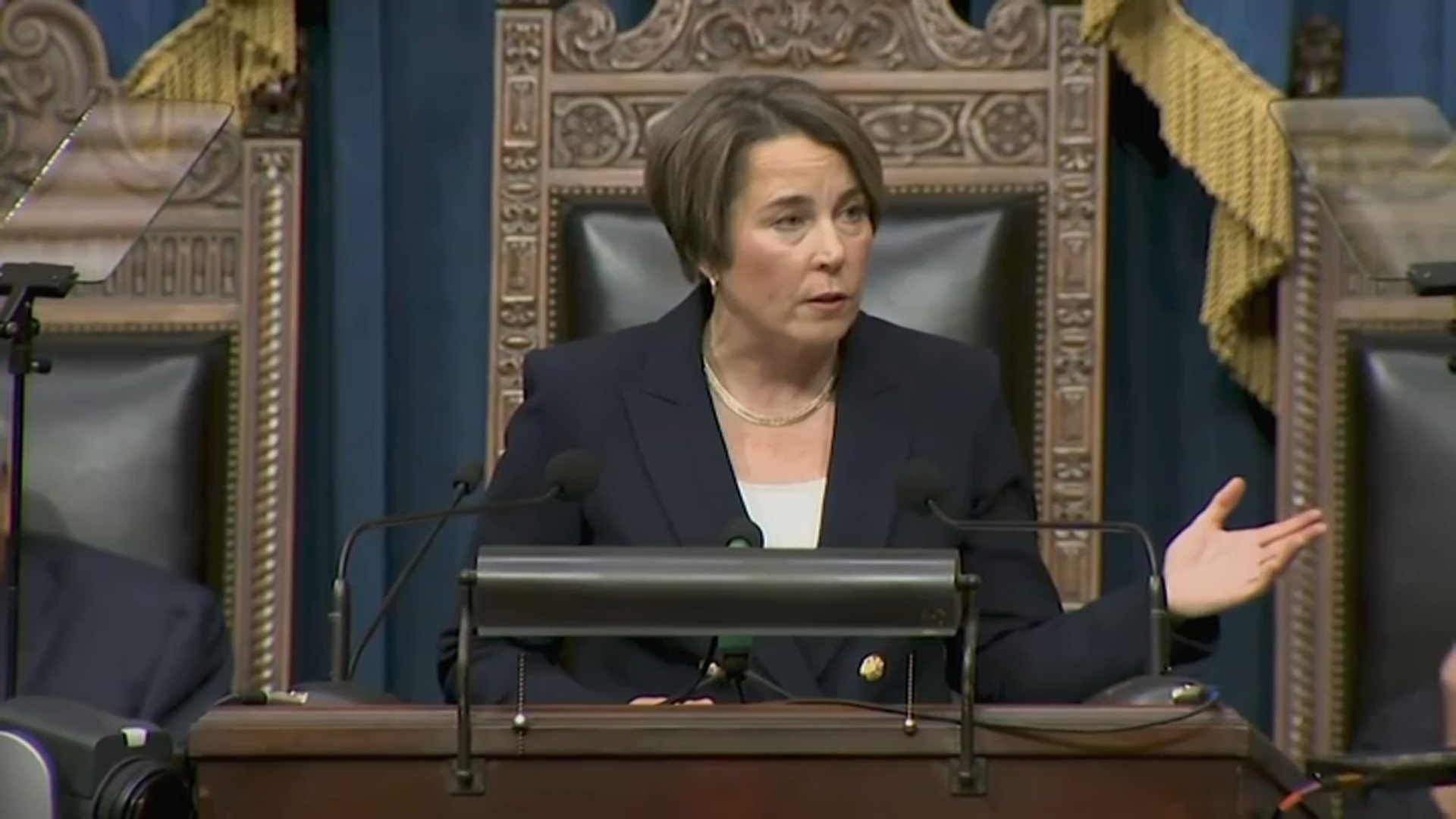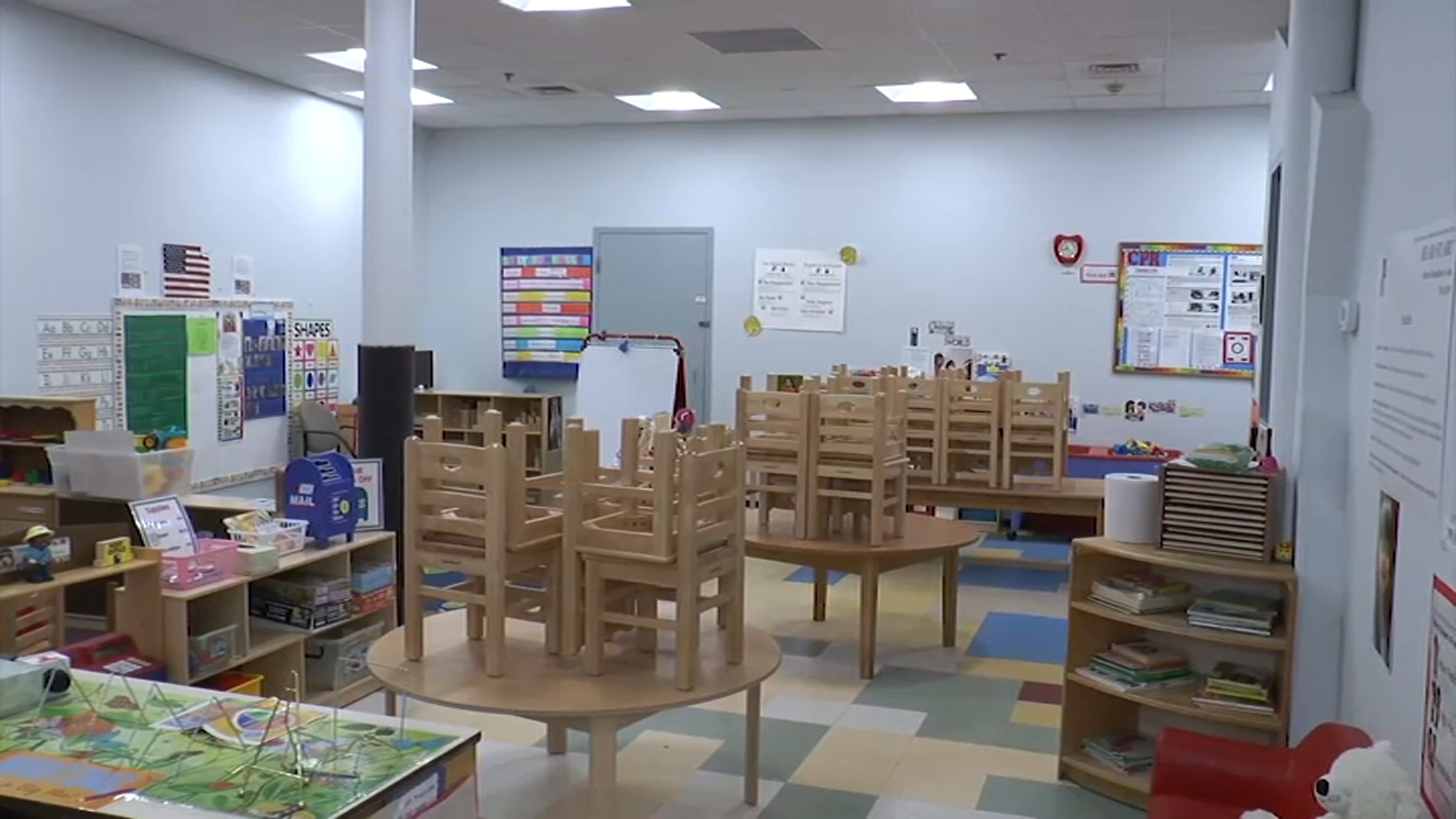During her State of the Commonwealth speech Wednesday, Massachusetts Gov. Maura Healey announced several proposed investments in housing, education, mental health and transportation.
Healey said the state plans to invest $30 million in a new five-year initiative to improve early literacy education, called "Literacy Launch."
WATCH ANYTIME FOR FREE
>Stream NBC10 Boston news for free, 24/7, wherever you are. |
"What this is all about is aligning best practice and what the research says is most effective with what is happening in classrooms," explained Massachusetts Secretary of Education Dr. Patrick Tutwiler. "Most people are familiar with the word 'phonics,' which is really supporting students with the process of sounding out letters, stringing those letters together to create words and then helping students understand the meaning of those words en route to reading. That vocabulary development, that letter understanding, those are sort of the core pieces of this. We've gotten away from that and sort of explored other ways, but this, research says, is the most powerful way to teach reading, and we are very excited to begin to support that in districts across the Commonwealth."
This comes after a statewide analysis found a majority of the state's third-graders were not meeting expectations in English Language Arts on last year's MCAS exam.
Get updates on what's happening in Boston to your inbox. Sign up for our >News Headlines newsletter.
"Early reading indicators by third grade can predict, with relatively high degrees of reliability, how a student will do academically across their entire academic career," said Dr. David Chard, dean of Boston University's Wheelock College of Education & Human Development.
"Teaching children to read is not a simple matter. It doesn't happen simply by reading to them a lot. It requires instructional strategies and approaches that for which there's a really strong evidence base, and it dates back 50 years or more, that we have built an evidence base on how best to teach children to read. The teacher's job is both to help them understand how to read the actual system of reading, but then making sure they have access to libraries and content that broadens their knowledge and sets them up for future success," said Chard. "One other area of challenge there is that some children don't learn to read easily. It requires extra effort, extra support, additional resources. And those children need even more sophisticated instructional guidance, which requires additional teacher training."
According to the Literacy Launch webpage, the initiative will accelerate the timeline for school districts and early education programs to adopt high-quality literacy materials and provide technical support, coaching, and professional development to educators.
It will also update approval criteria and accelerate review timelines for teacher education programs to require evidence-based early literacy training.
Healey also proposed an investment of $10 million in mental health programs.
"We have a task ahead of us to best meet the needs of these young people, and the governor's commitment and investment will make a big difference," said Danna Mauch, president and CEO of the Massachusetts Association for Mental Health.
She said over the past year, the state has expanded its capacity to respond to the need for emergency services with the establishment of the 26 community behavioral health centers.
"Those community behavioral health centers have enhanced capacity to deliver crisis stabilization services, mobile crisis intervention, and, for the first time ever, urgent care," said Mauch. "For known clients, they would see those clients, or children and families, within a 24-hour period; for any new client, within 48 hours. This is a major change in the way care is provided."
She said the commonwealth also established a 24/7 behavioral health helpline, supervised by licensed clinicians. As of the Jan. 7 of this year, Mauch said there have been 43,235 calls from people across the age span — 16% of those calls came from people, children and youth under the age of 26.
Healey noted that in the past year, the number of young people staying in emergency rooms for mental health crises was reduced by half.
"Kids with complex conditions stay the longest of all, so it's very important that we're seeing this kind of intervention and new investments," said Mauch.
Healey also announced plans to invest record funding for local roads and bridges, double support in the budget for MBTA operations, and fund a system-wide reduced fare for low-income T riders.
"We are taking this to mean, as a signal, that the governor has heard and is hearing the people of Massachusetts, particularly on how transportation is vital, and yet still also a barrier to opportunities and employment," said Reggie Ramos, executive director of the transit advocacy group Transportation For Massachusetts. "A commitment to a permanent reduced fares where we do not end up with a hodgepodge of free fares here and there is really, really signals of commitment that we are moving towards, you know, equitable access to transportation."
The governor also announced she would appoint a task force on transportation financing in the clean energy era.
"As people switch to more fuel-efficient vehicles and electric vehicles, we are going to need a source to replace the gas tax to make sure that our roads and bridges that also our public transit buses drive on as well are well-maintained," said Jarred Johnson, executive director of Transit Matters, another transit advocacy group.
Thursday, the governor said she does not plan to pursue tax increases to pay for these investments.
"We are coming in at a time when we have this separate funding stream for transportation and infrastructure through the Fair Share Amendment, and so our job as stewards here, and stewards of taxpayer dollars, is to make sure that we are making budget proposals that are smart, that are strategic," said Healey.



